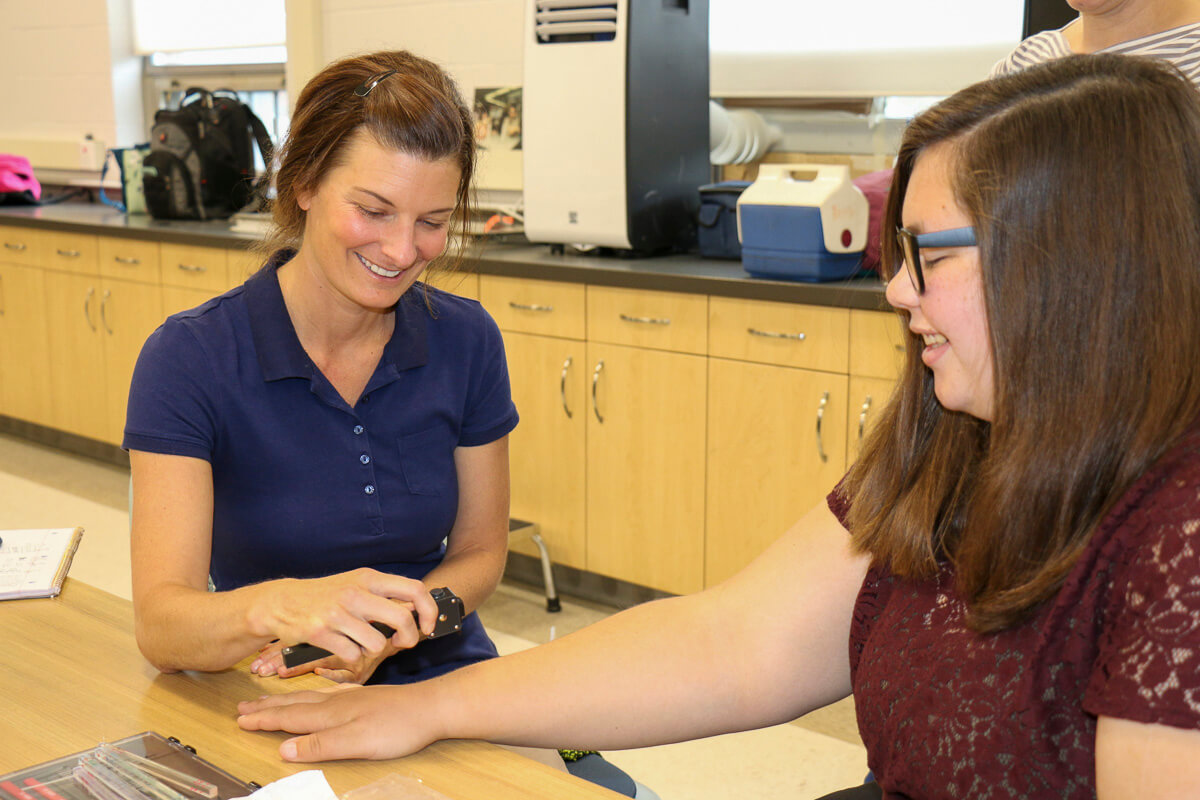Overview
-August 2024 Update: The Phlebotomy Course for Fall 2024 has been cancelled due to low enrollment. Please check back soon for our next Phlebotomy course offering.
Phlebotomy is a rewarding entry-level career for someone who desires to work directly with patients. Quality collection of blood samples by phlebotomists are what allow Medical Lab Technologists and Physicians to produce accurate laboratory results and determine proper medical treatments. Phlebotomists must possess a number of physical and interpersonal skills in order to perform their job safely including fine motor skills, mobility, the ability to operate mechanical and computerized equipment, and perform clerical duties. Good communication skills are critical in dealing with patients, clients, physicians, nurses and other health care workers. Important information about the program is found here in our information packet (PDF).
RVCC 2024-2025 Phlebotomy Program Handbook (pdf)
Watch our 15 minute Info Session to find out more about the Phlebotomy program at RVCC.
Why RVCC?
A small class size paired with instructors who are practicing Phlebotomists ensure that you are getting a quality, hands on education.
Related Degrees
- Medical Laboratory Technician
- Nursing
- Respiratory
- Medical Assisting
Program Specific Requirements
- Completion of high school/GED/HiSET scores
- Completion of the Essential Skills of the Phlebotomist form (available after April 1st each year).
- A grade of “C”or better in both the Phlebotomy course and internship are required for certification
- Internships will be assigned for spring semester each year and must be completed during three consecutive weeks, full time, day shift for a total of 120 hours
Requirements that must be completed prior to internship:
- Be 18 years of age or older prior to December 31st of the year prior to starting the Phlebotomy Internship
- CPR
- Proof of health insurance
- 12 Panel Drug Screen
- Bureau of Elderly Abuse Screen
- Receipt of proof of immunity to infectious disease through documentation or receipt of vaccines
- Completion of the Essential Skills of the Phlebotomist form (available after April 1st each year).
Course Sequencing
Program Goals
The goal of the Phlebotomy program is to provide students with the skills required of entry-level clinicians and to meet the Route 2 eligibility requirements for the Phlebotomy Technician (PBT) examination through the American Society of Clinical Pathologists (ASCP).
Program Outcomes
At the end of the Phlebotomy Program, certificate recipients will:
- Demonstrate entry-level phlebotomy skills for routine procedures.
- Demonstrate professional conduct and practice behavior consistent with established professional code of ethics.
- Communicate accurately and precisely using written, verbal and non-verbal techniques, ensuring understanding by the recipient.
- Demonstrate skills representative of safe working practices as defined by the CDC and OSHA.
- Describe health care systems, including functions, components and organizational structures.
- Describe the components and functions of departments of the clinical laboratory.
- Define medical terminology associated with the function of a phlebotomist.
8. Relate basic anatomy and physiology concepts to the practices and procedures of a phlebotomist.
To transform students into quality, responsible phlebotomists with relevant skills and knowledge that meets the needs of the community and the profession.
Nancy Eckert (she/her)
Allied Health | Medical Lab Technician | PhlebotomyProfessor & Program Director, Medical Laboratory Technician & Phlebotomy
6 Credits Required
of students qualify for financial aid
Program Contact
Nancy Eckert
Program Director
[email protected]



 Health Sciences and Services
Health Sciences and Services